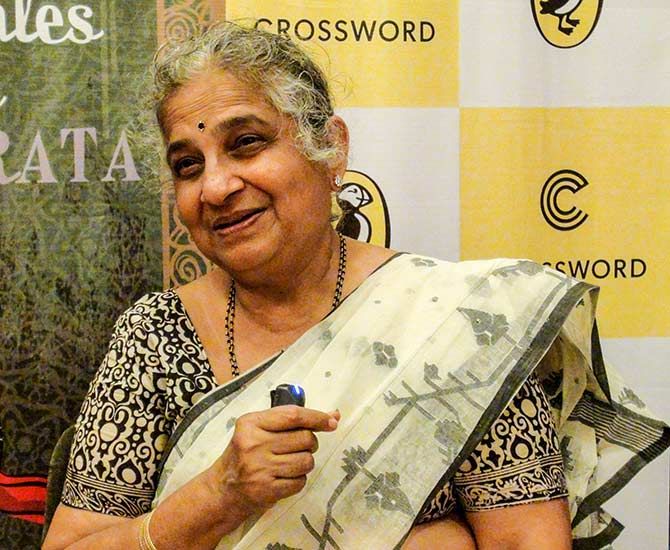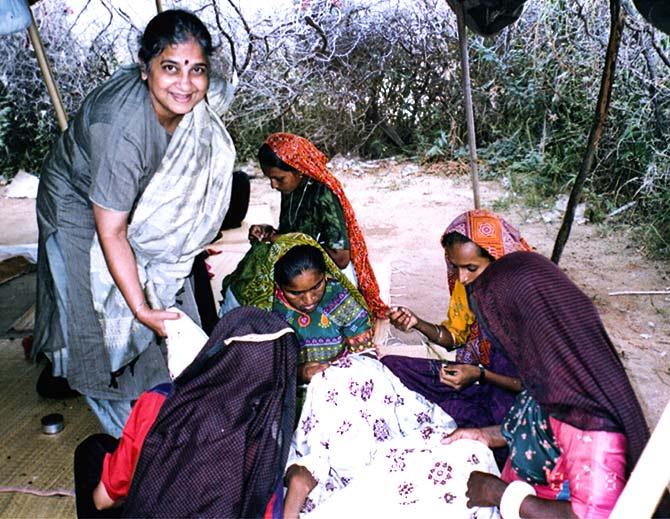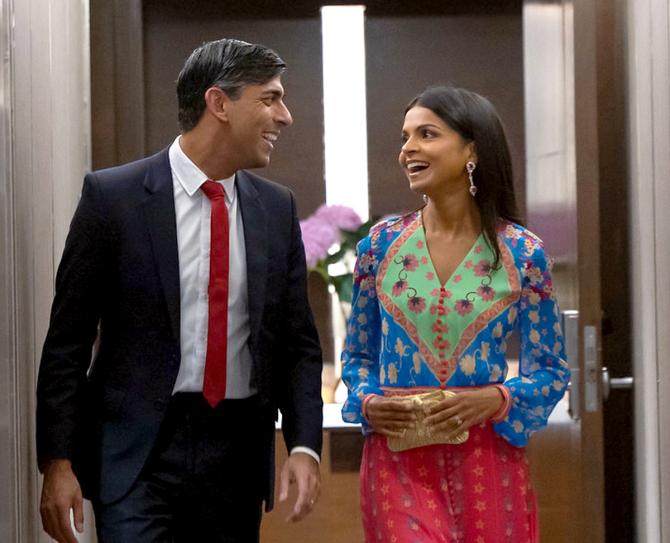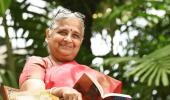Sudha Murty has some candid confessions to make about about daughter Akshata.
And here's what Akshata has to say about her mother.

She's 'fun-loving'.
Her daughter is 'more serious, analytical and organised'.
She's emotional and an extrovert.
Her daughter, like her well-known father, is an 'introvert'.
In a candid conversation with The Sunday Times, Mrs Sudha Murty confesses about Akshata Murty, her daughter and former British prime minister Rishi Sunak's wife. 'She has a sense of colour and style I don't have. My mind is always somewhere else, with books and philanthropy.'
So much so, Akshata told the newspaper, 'She works with so many people who have nothing; part of understanding who they are involves living a simple life and never buying anything new for herself... The only things I am allowed to give her are books and stories and my time.'

Her journey as a philanthropist, says Mrs Murty, began because of Akshata, 'She used to read for a child at a blind school, and one day she said, "He's bright; we should sponsor him." I was busy so she said, "Amma, what's your duty to society?"'
'I remember it so clearly. She was very upset with me.
'I resigned from my teaching job and told (her husband, Infosys co-founder N R Narayana) Murthy we had to set up a philanthropic foundation. First, I gave a cheque for the boy's education.
'Over 30 years we've built village toilets, hospitals, houses, roads, worked through 13 national disasters and the pandemic. I was sleeping and by asking a fundamental question, Akshata woke me up.'
The Infosys Foundation, which has since funded numerous initiatives, from building hospitals to providing relief in times of national disasters.
These were some of the insights that Mrs Murty and Akshata Murty shared about each other in a heartfelt conversation with The Sunday Times. They talked about their lives, their values and the experiences that shaped them.

Sudha Murty, 74, an author, philanthropist and social worker, and Akshata, 44, an entrepreneur, reveal the profound impact their upbringing had on their worldview -- one rooted in simplicity, compassion and a deep commitment to giving back.
One of Mrs Murty's most poignant memories was leaving her infant daughter Akshata with her mother so that she could continue with her job as an engineer -- it was rare for a woman to work as an engineer then; she was supporting the family while Narayana Murthy and his colleagues were creating Infosys.
'When Murthy and I married in 1978,' she recalls 'I lent him Rs 6,000 rupees, so he could start his company, Infosys, with six colleagues in a room in our house in Pune. Infosys made a policy that family members should not work in the company, to avoid conflict of interest, so I couldn't join.
'I did the accounts and if the programmer didn't come, I was a programmer. Sometimes I was a driver -- my husband doesn't drive. Of course I was upset not to be part of it. For two or three years it was so, so hard but somebody had to bring in a salary so I stayed on at Telco.'
The decision to leave her baby daughter with her mother -- Mrs Murty was only able to see her occasionally -- was heart-breaking, 'but I had to do it.'
She cried every night, missing her child, but knowing that she had a responsibility to provide for her family, she continued with the arrangement.
Mrs Murty's perspective on motherhood was built around self-sacrifice and hard choices and she instilled those values in her children. 'Nothing in life is free,' she says, 'except for a mother's love.'
Akshata, deeply influenced by her mother's philosophy, grew up with a sense of responsibility and an appreciation for hard work.

While she was a student at Stanford University, Akshata met Rishi Sunak, and she was immediately drawn to him. He wasn't the stereotypical 'cool kid' and charmed by his deep values and passion to do something for society, 'I fell in love on the spot,' she recalls.
It was, after all, what she had seen back home and what she was most familiar with.
Rishi's love for the UK and his desire to make a positive impact reminded her of her father, who had always dreamed of putting India on the global map.
Rishi, too, admired Akshata's commitment to education and philanthropy, and the two of them quickly realised they had common goals.
'This is only going to work if you are happy to make the UK your home,' Rishi told Akshata early on.

Mrs Muthy was happy that her daughter and son-in-law's values aligned with the principles she and her husband have lived by.
Despite their significant wealth, Akshata's parents have always maintained a simple lifestyle, focusing on philanthropy rather than luxury. Mrs Murty says, 'The only thing that interests me about money is how I can give it away.'
This has been the example Akshata has grown up with.
While she acknowledges the privileges that come with her family's wealth, she believes strongly in using that wealth for good. 'I feel incredibly blessed to have financial resources so my focus is not on making more money, but what is my responsibility?'
As a mother to two beautiful girls, Krishna and Anoushka, Akshata implements the lessons she has learnt from her mother.
'There has never been pressure from my mother. I don't think she's ever asked me, 'What's your plan?' Not once. That's very unusual for an Indian parent. Her values were the guardrails -- everything else was up to us. It's a beautiful way of parenting and the thing I aspire to most.'











 © 2025
© 2025